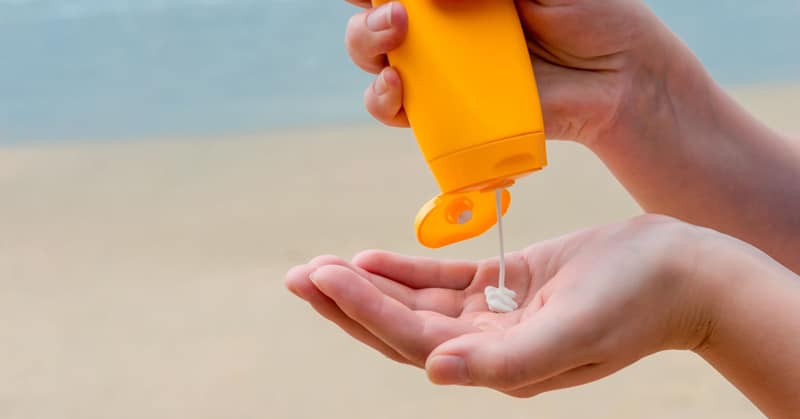
Planning a tropical getaway? While soaking up the sun may sound like a dream, it’s crucial to prioritize sun protection to keep your skin safe and healthy. In this article, we will explore the essentials of sun protection and provide you with valuable tips to enjoy your vacation without compromising your skin’s well-being.
Understanding Sun Protection
- The Importance of Sun Protection
When basking under the tropical sun, it’s easy to underestimate the harmful effects of ultraviolet (UV) radiation. However, prolonged sun exposure without protection can lead to sunburn, premature aging, and an increased risk of skin cancer. Understanding the importance of sun protection is the first step toward safeguarding your skin.
- Types of Sun Damage
UV radiation comes in two main forms: UVA and UVB. UVA rays can penetrate deeper into the skin, leading to long-term damage like wrinkles and skin sagging. UVB rays are responsible for sunburns and immediate skin damage. Both types contribute to the development of skin cancer. It’s essential to protect yourself from both UVA and UVB radiation.
Choosing the Right Sunscreen
- SPF and Sunscreen Effectiveness
When selecting a sunscreen, you’ll often come across the term SPF, which stands for Sun Protection Factor. SPF indicates the level of protection against UVB rays. Higher SPF values offer greater protection, but it’s important to note that no sunscreen can block 100% of UV rays. It is recommended to use a broad-spectrum sunscreen with an SPF of 30 or higher.
- Broad-Spectrum Sunscreens
Broad-spectrum sunscreens provide protection against both UVA and UVB rays. Look for sunscreens labeled as “broad-spectrum” to ensure comprehensive coverage. This will shield your skin from the harmful effects of both types of UV radiation.
- Water-Resistant Sunscreens
For tropical getaways involving water activities, water-resistant sunscreens are a must. These sunscreens are designed to stay effective even after exposure to water or sweat. Remember to reapply them according to the instructions to maintain their efficacy.
Other Sun Protection Measures
- Protective Clothing
While sunscreen is essential, relying solely on it is not enough. Wearing protective clothing can provide an extra layer of defense against UV radiation. Opt for lightweight, loose-fitting garments that cover as much skin as possible. Don’t forget to protect your head, neck, and shoulders.
- Wide-Brimmed Hats and Sunglasses
Accessories like wide-brimmed hats and sunglasses offer additional protection for your face, eyes, and neck. A wide-brimmed hat can shield your face from direct sunlight, while sunglasses with UV protection safeguard your eyes from harmful rays. Pairing these accessories with sunscreen creates a comprehensive sun protection strategy.
- Seeking Shade
When the sun is at its peak, seek shade whenever possible. Taking breaks from direct sunlight allows your skin to recover and reduces the risk of sunburn. Use beach umbrellas, natural shade from trees, or seek shelter indoors during the hottest hours of the day.
Sun Protection for Different Activities
- Beach and Pool Days
For beach and pool days, it’s important to choose a water-resistant sunscreen and reapply it regularly, especially after swimming or towel-drying. Consider using a higher SPF on sensitive areas like the nose, ears, and shoulders. Don’t forget to bring your wide-brimmed hat, sunglasses, and beach umbrella for added protection.
- Outdoor Adventures
If your tropical getaway involves outdoor adventures like hiking, snorkeling, or sightseeing, prioritize sun protection throughout the day. Apply sunscreen before leaving and reapply it every few hours, especially if you’re sweating or spending extended periods outdoors. Wear appropriate clothing, including long sleeves and pants, to shield your skin from direct sunlight.
- Everyday Protection
Even if you’re not engaging in specific activities, everyday sun protection is crucial. Incorporate sun protection into your daily skincare routine by using a moisturizer or makeup with SPF. This ensures constant defense against UV radiation, whether you’re indoors or outdoors.
Sun Protection Tips for Children
- Importance of Sun Protection for Children
Children have sensitive skin that requires extra care under the sun. Shielding them from harmful UV rays during their tropical getaway is essential to prevent sunburn and long-term damage. Start teaching them about sun protection early on to establish healthy habits.
- Choosing Sunscreen for Children
Selecting the right sunscreen for children is crucial. Look for products specifically formulated for their delicate skin, with a minimum SPF of 30. Ensure the sunscreen is free from harsh chemicals and fragrance to minimize the risk of irritation. Remember to apply sunscreen on all exposed areas and reapply as needed.
- Additional Protection Measures for Children
In addition to sunscreen, consider dressing your child in sun-protective clothing, including hats and sunglasses. Limit their exposure to direct sunlight by seeking shade and scheduling outdoor activities during non-peak hours. Encourage frequent hydration to keep their skin and bodies healthy.
After-Sun Care
- Soothing Sunburned Skin
Despite our best efforts, sunburns can sometimes happen. If you or your loved ones experience sunburn, take immediate steps to soothe the skin. Apply a cool compress, take cool baths, and use moisturizers or aloe vera gel to relieve discomfort. Avoid further sun exposure until the skin has healed.
- Hydrating and Repairing the Skin
After prolonged sun exposure, it’s essential to replenish your skin’s moisture and support its recovery. Use hydrating skincare products that contain ingredients like hyaluronic acid or ceramides. These ingredients help restore the skin’s moisture barrier and promote healing.
Conclusion
Sun protection is not a choice but a necessity, especially when embarking on a tropical getaway. Prioritize your skin’s health by understanding the importance of sun protection, choosing the right sunscreen, and implementing additional measures like protective clothing and seeking shade. Take special care of children’s delicate skin and practice after-sun care to maintain skin health. Enjoy your tropical adventure while keeping your skin safe and beautiful.
FAQs
1. Can I skip sunscreen if I have darker skin?
While individuals with darker skin have more melanin, which offers some natural protection against the sun, it’s still crucial to use sunscreen. UV rays can still cause damage and increase the risk of skin cancer. Choose a broad-spectrum sunscreen with an appropriate SPF for your skin tone.
2. Is sunscreen necessary on cloudy days?
Yes, UV rays can penetrate clouds and cause skin damage even on cloudy days. Apply sunscreen as part of your daily routine, regardless of the weather conditions, to maintain optimal sun protection.
3. Can I use expired sunscreen?
It’s best to avoid using expired sunscreen as its effectiveness may have diminished over time. Check the expiration date on the packaging and replace any expired products to ensure adequate sun protection.
4. Can I wear makeup over sunscreen?
Yes, you can wear makeup over sunscreen. Opt for lightweight, non-comedogenic products that won’t clog your pores. Look for makeup products with added SPF for an extra layer of protection.
5. What are the risks of not protecting my skin from the sun?
Failing to protect your skin from the sun can lead to various risks, including sunburn, premature aging, wrinkles, dark spots, and an increased risk of skin cancer. It’s important to prioritize sun protection to maintain healthy and youthful-looking skin.
